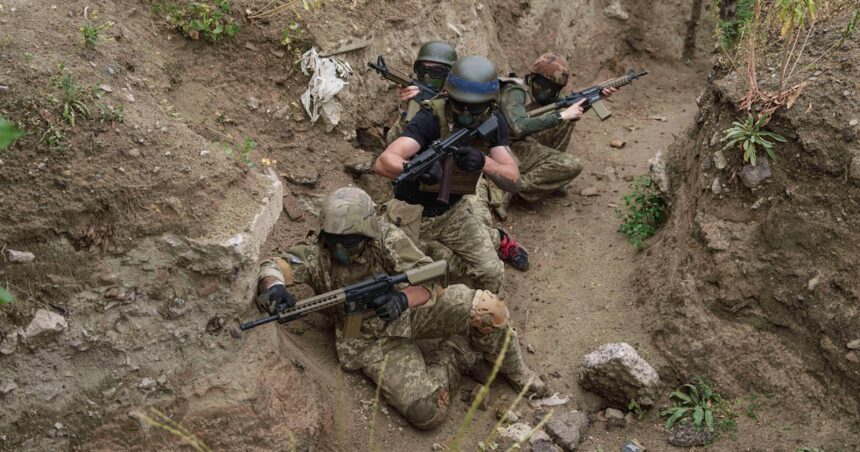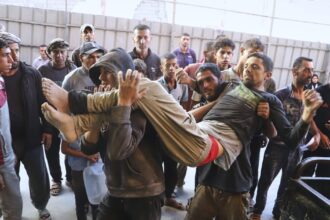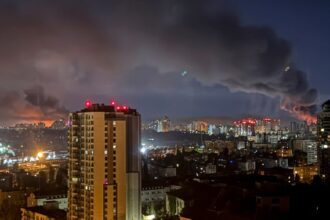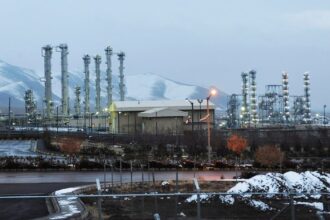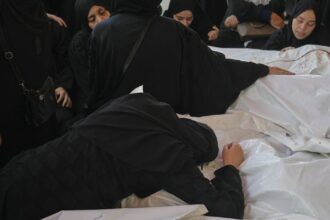In a significant diplomatic breakthrough, Ukrainian officials have extended a formal invitation to Russian counterparts for ceasefire negotiations scheduled to begin next Monday in Geneva, Switzerland. This marks the first direct high-level engagement between the warring nations since peace talks collapsed in early 2024, potentially signaling a pivotal moment in the conflict that has devastated Eastern Europe for over three years.
“After 39 months of brutal fighting, both sides recognize the urgent necessity of diplomatic solutions,” said Ukrainian Foreign Minister Dmytro Kuleba during yesterday’s press conference in Kyiv. “These negotiations represent perhaps our most meaningful opportunity to chart a path toward sustainable peace.”
The announcement comes amid escalating humanitarian concerns, with the UN reporting that civilian casualties have surpassed 18,000 since the conflict’s inception, while nearly 7 million Ukrainians remain displaced. Winter approaches with critical energy infrastructure severely compromised across Ukraine’s eastern regions, raising alarms about a potential humanitarian catastrophe without immediate de-escalation.
International mediators from France, Turkey, and Switzerland have reportedly worked behind the scenes for months to facilitate this diplomatic opening. The talks will focus initially on establishing humanitarian corridors, prisoner exchanges, and local ceasefires in the most contested regions before potentially expanding to broader territorial questions.
The Kremlin has responded cautiously to Ukraine’s invitation. Russian Presidential spokesperson Dmitry Peskov confirmed Moscow’s participation while emphasizing that “Russia’s fundamental security interests remain non-negotiable.” Sources within European diplomatic circles suggest Russia’s willingness to engage may reflect growing economic pressures from prolonged international sanctions that have increasingly isolated its economy.
Financial markets responded positively to the announcement, with European energy futures dropping 8% on expectations that regional stability might improve. The German DAX and French CAC 40 both closed up over 2%, reflecting cautious investor optimism about potential conflict resolution.
However, military activity has intensified along the eastern front in apparent positioning ahead of negotiations. Satellite imagery reveals significant troop movements on both sides, with Ukrainian forces fortifying defensive positions while Russian units reportedly consolidate their presence in occupied territories.
“History has taught us to remain clear-eyed about Russia’s intentions,” noted Canadian Foreign Affairs Minister Mélanie Joly in a statement supporting the talks. Canada has pledged additional humanitarian assistance of $75 million while maintaining its military support package for Ukraine.
The negotiations face formidable challenges. Previous attempts at peace have repeatedly collapsed over fundamental disagreements regarding territorial integrity, Ukraine’s geopolitical alignment, and security guarantees. Ukrainian President Volodymyr Zelensky has consistently maintained that any settlement must respect Ukraine’s internationally recognized borders, a position that conflicts with Russia’s claimed annexations.
Military analysts observe that both sides appear to be seeking diplomatic options from positions of relative exhaustion rather than strength. “Neither side has demonstrated the capacity to achieve decisive military victory in recent months,” explains Dr. Alexandra Markovic of the International Crisis Group. “We’re witnessing a classic scenario where the costs of continued conflict have become prohibitively high for all parties.”
The talks represent a critical test for Western unity as well. While public support for Ukraine remains strong across NATO countries, domestic political pressures regarding inflation and energy security have complicated the alliance’s long-term commitment to unlimited military assistance.
As negotiators prepare for what may be the most consequential diplomatic effort since the conflict began, one question remains paramount: Can this moment of mutual recognition of the war’s unsustainable costs translate into genuine political will for the difficult compromises peace will require?

